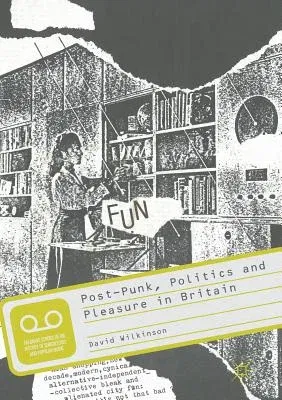David Wilkinson
(Author)Post-Punk, Politics and Pleasure in Britain (2016)Paperback - 2016, 5 December 2018

Qty
1
Turbo
Ships in 2 - 3 days
In Stock
Free Delivery
Cash on Delivery
15 Days
Free Returns
Secure Checkout
Part of Series
Palgrave Studies in the History of Subcultures and Popular M
Print Length
228 pages
Language
English
Publisher
Palgrave MacMillan
Date Published
5 Dec 2018
ISBN-10
1349698075
ISBN-13
9781349698073
Description
Product Details
Author:
Book Edition:
2016
Book Format:
Paperback
Country of Origin:
NL
Date Published:
5 December 2018
Dimensions:
21.01 x
14.81 x
1.3 cm
Genre:
British
ISBN-10:
1349698075
ISBN-13:
9781349698073
Language:
English
Location:
London
Pages:
228
Publisher:
Weight:
294.83 gm

